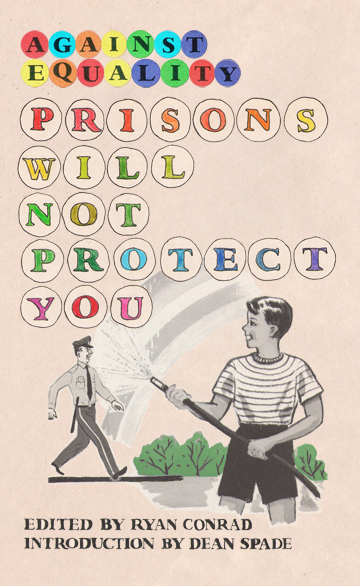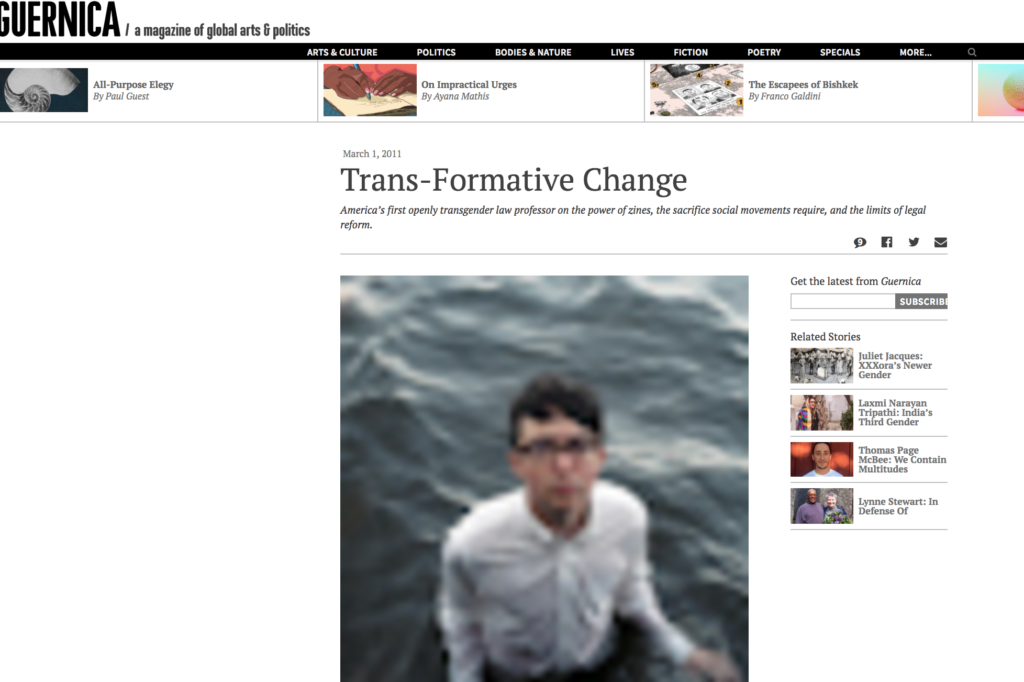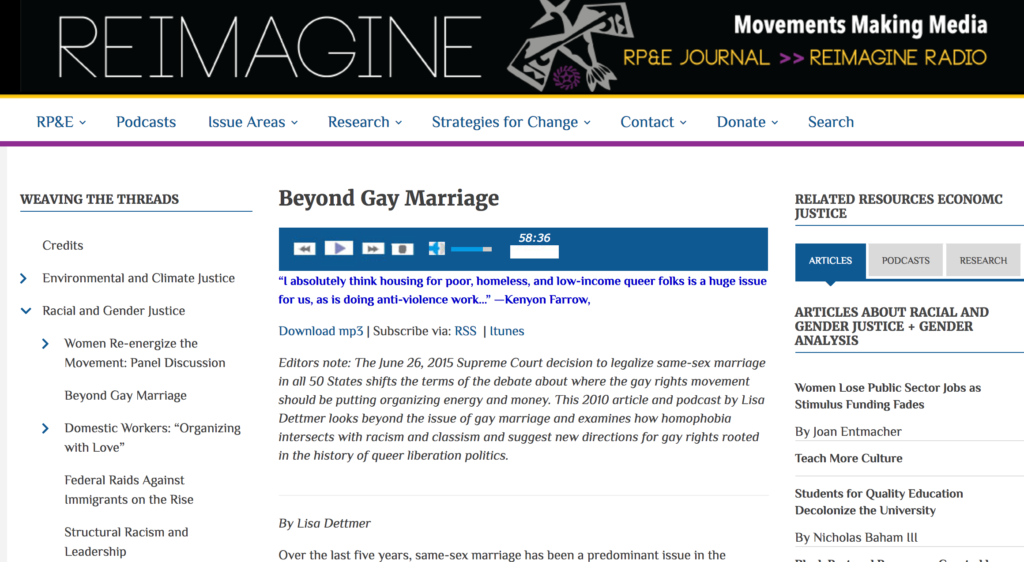For Israeli Apartheid week, I joined the SUPER chapter at Western Washington University and gave a talk on pinkwashing and how it emerged from a rights-based gay liberal inclusion politics, and what it looks like to resist that politics and center racial and economic justice in queer and trans liberation work. The first two minutes have some strange audio so I recommend skipping to 2:00 and diving in from there.
Queer Dreams and Nonprofit Blues: Historical Perspectives
“Their Laws Will Never Make Us Safer” in Spanish
The amazing and generous Morgan Ztardust has translated my introduction to the new Against Equality book about hate crime law critiques into Spanish. Thanks, Morgan! You can read it here.
Their Laws Will Never Make Us Safer
The new Against Equality book, Prisons Will Not Protect You, has been published! I wrote an introduction for it called “Their Laws Will Never Make Us Safer” about why hate crime laws don’t help queer and trans people, but do build up a police state that targets us.
Learn more about the anthology from Against Equality.
Interview in Guernica
Beyond Gay Marriage Podcast
Lisa Dettmer just released her podcast and article critically examining same-sex marriage advocacy. The podcast includes interviews me and many other critics of same-sex marriage advocacy. Thanks to Lisa for the great work!
Click here
Two Special Issues of Sexuality Research and Social Policy: Journal of NSRC
Paisley Currah and I co-edited the two-part special issue “The State We’re In: Locations of Coercion and Resistance in Trans Policy” in Sexuality Research and Social Policy: Journal of NSRC Vol. 4. No. 4 (December 2007) and Vol. 5, No. 1 (March 2008).
Read the introduction to the first volume here and read the introduction to the second volume here. A table of contents for both issues and links to most of the articles are below.
Part 1 (December 2007): Table of Contents
Introduction to Special Issue The State We’re In: Locations of Coercion and Resistance in Trans Policy, Part 1, Paisley Currah and Dean Spade
Unraveling Injustice: Race and Class Impact of Medicaid Exclusions of Transition-Related Health Care for Transgender People, Pooja S. Gehi and Gabriel Arkles
Sex Workers, Fem Queens, and Cross-Dressers: Differential Marginalizations and HIV Vulnerabilities Among Three Ethnocultural Male-to-Female Transgender Communities in New York City, Sel Julian Hwahng and Larry Nuttbrock
Seeking Refuge Under the Umbrella: Inclusion, Exclusion, and Organizing Within the Category Transgender, Megan Davidson
Transgender Health Benefits: Collateral Damage in the Resolution of the National Health Care Financing Dilemma, R. Nick Gorton
Momentum: A Photo Essay of the Transgender Community in the United States Over 30 Years, 1978–2007, Mariette Pathy Allen
Part 2 (March 2008): Table of Contents
Introduction to Special Issue The State We’re In: Locations of Coercion and Resistance in Trans Policy, Part 2, Dean Spade and Paisley Currah
Talking, Gawking, or Getting It Done: Provider Trainings to Increase Cultural and Clinical Competence for Transgender and Gender-Nonconforming Patients and Clients, Christoph Hanssmann, Darius Morrison, and Ellery Russian
Gender Identity and Hate Crimes: Violence Against Transgender People in Los Angeles County, Rebecca L. Stotzer
The Nonprofit Industrial Complex and Trans Resistance, Rickke Mananzala and Dean Spade
And by the Way, Do You Know He Thinks He’s a Girl? The Failures of Law, Policy, and Legal Representation for Transgender Youth in Juvenile Delinquency Courts, Jody Marksamer
Confronting the Limits of Gay Hate Crimes Activism: A Radical Critique, with Craig Willse
I co-authored with Craig Willse “Confronting the Limits of Gay Hate Crimes Activism: A Radical Critique” in Chicano-Latino Law Review in 2000. You can read it here.
Abstract
Questioning the emancipatory potential of hate crimes activism for sexual and gender non-normative people, this paper outlines the limits of criminal justice remedies to problems of gender, race, economic and sexual subordination. The first section considers some of the positive impacts of hate crimes activism, focusing on the benefits of legal “naming” for disenfranchised constituencies seeking political recognition. In the next section the authors outline the political shortcomings and troubling consequences of hate crimes activism. First, they examine how hate crimes activism is situated within a “mainstream gay agenda,” a term they use to designate the set of projects prioritized by large, national gay rights organizations. The authors question the assimilationist drive of mainstream gay activism, and illustrate how such activism fails to reflect commitments to anti-racism, feminism, and economic redistribution. Second, they critique how the rhetoric of hate crimes activism isolates specific instances of violence against queer and transgender people, categorizing these as acts of individual prejudice, and obscures an understanding of the systemic, institutional nature of gender and sexuality subordination. Finally in this section, the authors interrogate hate crimes statutes as a practice of “identity politics” that, despite accomplishing certain goals, nonetheless dangerously reifies constructs of homosexual identity. In the third and final section, they look at how work on hate crimes occupies a place of “legitimacy” in the world of lesbian and gay activism. Preserving a sense of what hate crimes activism hopes to accomplish, they suggest other political strategies that pursue broader work for social and economic justice and build coalitions across identity categories.


